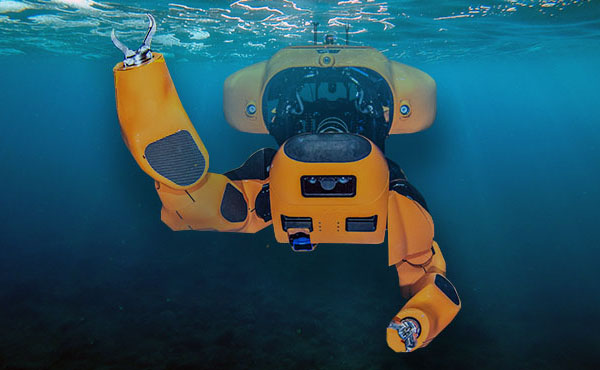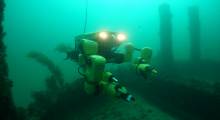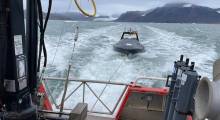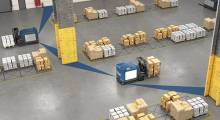Whether it's to discover or conserve ocean resources, autonomous systems are necessary for scientists, businesses, and nations to increase sustainable utilization, said Nauticus Robotics Inc.
The Webster, Texas-based company develops and offers ocean robots, autonomy software, and services to governmental and commercial customers through a robotics-as-a-service (RaaS) business model and direct product sales.
In April 2022, Nauticus began production of its Nauticus Fleet, which combines the Hydronaut surface vehicles and Aquanaut subsea robots. It plans to deploy the paired systems around the world in the second quarter of this year.
The company also makes products for retrofitting and upgrading legacy systems and third-party vehicle platforms. Nauticus said it provides customers with data collection, analytics, and subsea manipulation capabilities to support and maintain assets while reducing their operational footprint, operating cost, health and safety risk, and greenhouse gas emissions.
“For the past five years, we've been really heads-down on technology maturation, working with U.S. government interests on our autonomy architecture,” said Nicholas Radford, founder and CEO of Nauticus. “We've now moved from early prototypes and proofs of concept to scaling out for commercialization and early contract wins, such as International Submarine.”
Nauticus expands to the North Sea
Last month, Nauticus Robotics announced that it has begun operating in Stavanger, Norway, and Aberdeen, Scotland, to serve the North Sea offshore oil and gas market. The company plans to deploy assets and work with local partners to expand its Nauticus Fleet robotic navy as part of its international strategy for 2023 and beyond.
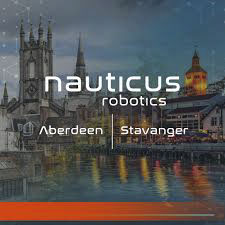
“The ocean touches nearly every aspect of our lives, yet paradoxically seems to receive less attention and innovation when compared to other sectors,” stated Radford.
“As we expand our operations to these strategic locales and beyond, our core mission remains the same: to become the most impactful ocean robotics company and realize a future where autonomous robotic technologies are commonplace and enable the 'blue economy' for the better,” he said.
In September 2022, Nauticus Robotics completed its merger with CleanTech Acquisition Corp., a special-purpose acquisition company (SPAC). Shell and the U.S. Defense Innovation Unit recently awarded Nauticus contracts.
“We have a significant partnership with Wood PLC, the world's largest engineering contractor,” Radford told Robotics 24/7. “We're looking at how to amplify each other's strengths. Developing algorithms and fleets of autonomous machines for the oceanscape is really challenging and exciting.”
“We believe very strongly that we need to reduce reliance on vessels for offshore tasks—you don't need a jackhammer for a nail,” he said. “As communication latencies increase and bandwidth decreases, we need more self-directed, self-sufficient behaviors at the agent.”
Radford discusses sustainability at UN event
In December 2022, Radford spoke at a United Nations event in New York titled, “Energy Transition Industries: Solutions to Achieving SDGs [Sustainable Development Goals]—How Renewable Energy Can Combat Inflation in Emerging Nations.”
“Nauticus Robotics was founded to challenge the costly and inefficient incumbent service infrastructure of the offshore industries, enact positive change and innovation in the blue economy, and create a major impact with our autonomous robots,” he said at the time. “I'm honored for the opportunity to speak to the UN about what we are doing at Nauticus alongside so many other like-minded organizations working toward sustainable improvements.”
The companies at the UN event offered presentations on commercial technologies to replace natural gas with hydrogen, create renewable gas and fertilizer from municipal solid waste, and extend battery life. They also discussed ways to electrify transportation, provide renewable solar electricity, and establish a carbon-offset market.
Nauticus said it has been investing in a range of cutting-edge technologies to help with ocean decarbonization. The company claimed that its technology generates 90% less carbon than the nearest competitor. It said its team is committed to making the Nauticus Fleet fully carbon-neutral in the coming years.
“Speaking at the UN was a surreal moment, like ringing the bell at Nasdaq,” recalled Radford. “The ocean economy isn't at the top of mind for a lot of people, but most of the world's population lives within 50 miles of the shore.”
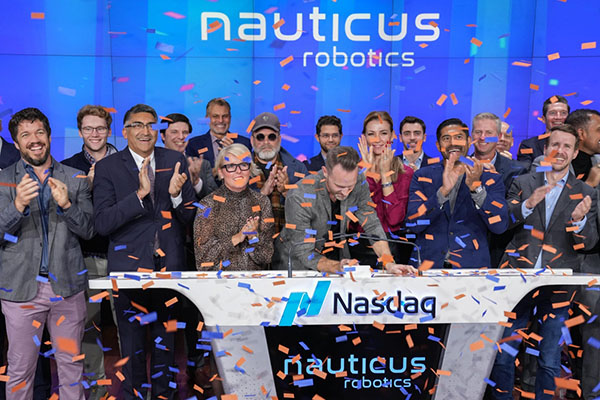
“We discussed supply chain insecurity ... and how to incrase resiliency,” he said. “Houston is the energy capital of the world, and it will be the energy-transition capital as well. Texas has two of the largest wind farms in the country.”
“Countries should not be left out of the advanced services that could help them make the energy transition,” Radford noted. “The price to deliver energy from wind farms is often not yet profitable because of the need for offshore maintenance. Robotics can help developing countries.”
From aquaculture and maintaining telecommunications cables to cleaning the “great garbage patches” and subsea mining for battery materials with fleets of small robots, Radford said he is following efforts to improve sustainable use of the oceans.
“I'm heartened by the fact the people were having great conversations and supporting the UN's SDGs but also recognizing that efforts have to be pragmatic and won't happen overnight,” he said. “I think it's the true final frontier. If sea levels are rising within the century, the solution is not to go to Mars.”
“Venture capital firms should spend more on the oceans,” asserted Radford. “The past 40 years have been invested in the digital world, but the next 100 years will be identified by the ubiquitous manipulation of the physical world.”
About the Author
Follow Robotics 24/7 on Linkedin
Article topics
Email Sign Up

